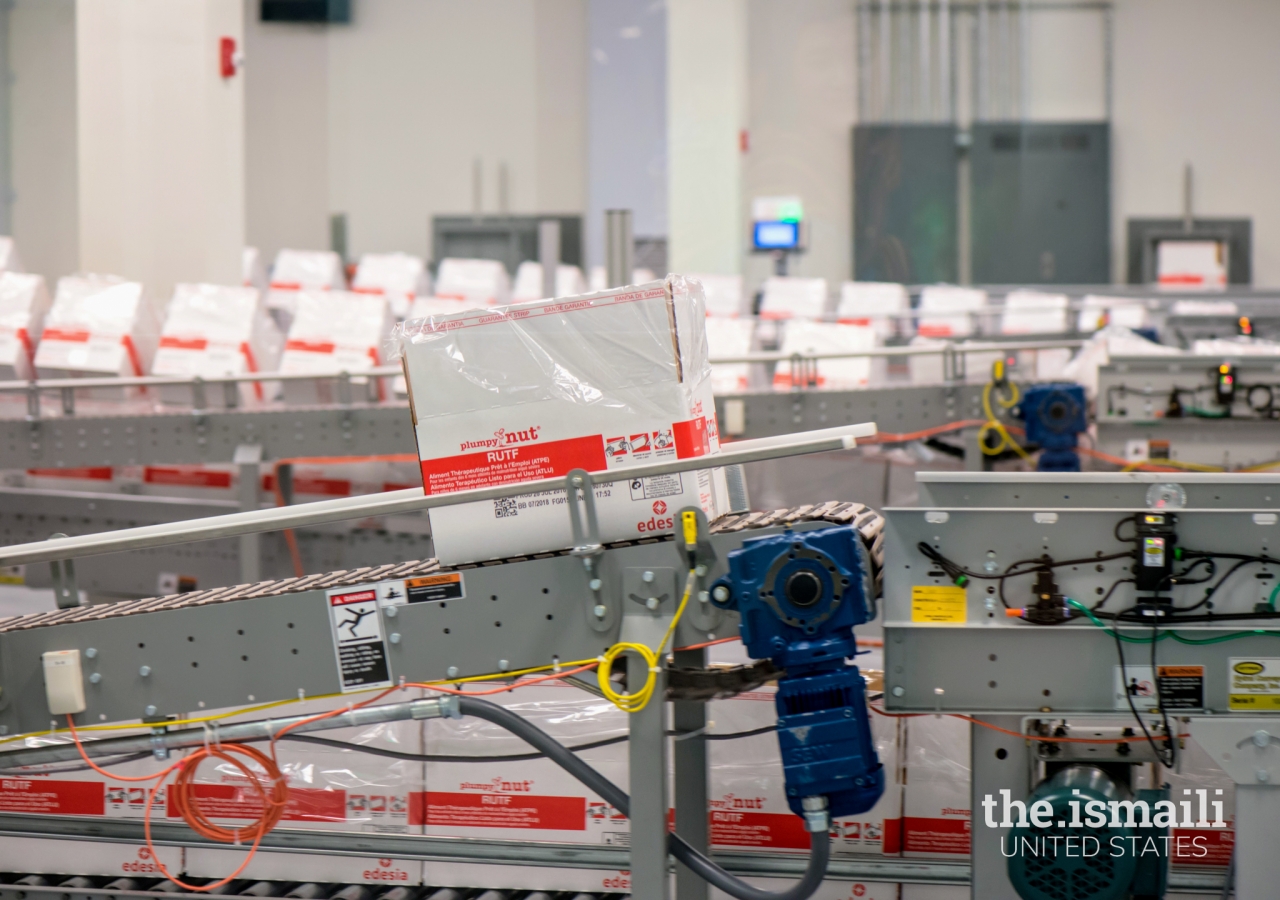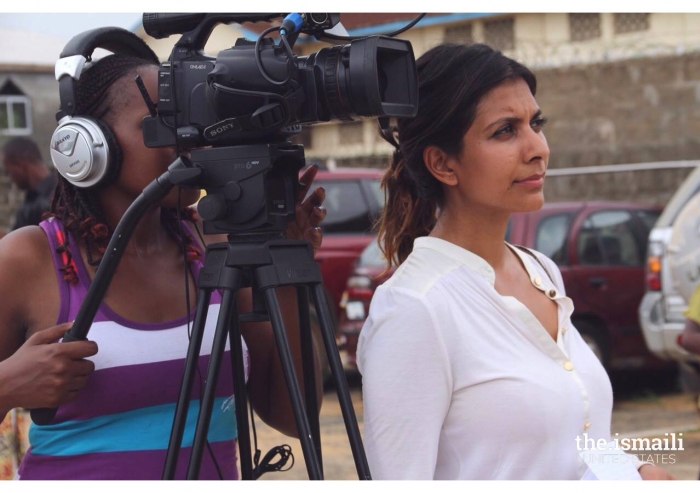“This little box is the difference between life and death. You don’t have to choose between doing good and having a paycheck, You can do both, and you should.” Navyn Salem, founder of Edesia.
A mission-driven Ismaili businesswoman and a mother of four manages a monumental task with humility and grace.
Navyn Salem with her father at her office

The most vulnerable victims of climate change, global warfare, and the pandemic, are children, often in the most overlooked parts of the globe: developing countries where food and water are continuously in short supply.
Navyn Salem and her father, Fazli Datoo, are actively working to change this situation
through their company, Edesia Global Nutrition Solutions. Named after the Roman goddess of food, they have been providing a pre-packaged product called Plumpy Nut, a peanut-based paste that features essential vitamins and nutrients, to malnourished children and their families in 60 countries around the globe. Their work has helped save millions of lives from the Philippines to Africa, and even in North America.
Attacking malnutrition is slightly different than tackling hunger. While both are rampant problems, malnutrition refers specifically to a lack of micronutrients that the brain needs to develop.
“One box of Plumpy Nut is 150 packets, which is the equivalent of breakfast, lunch, and dinner, for two months,” Navyn explains, and “That full treatment means that a brain has been built, that a life has been saved, and you can check the box that malnutrition has been addressed.”
“The impact is phenomenal when you’re able to reach the children. The hard part is we’re only reaching 25% of the severely malnourished children,” adds Navyn, from the 83,000 sq. ft. Providence, Rhode Island factory, a joint venture with the French nutrition product manufacturer, Nutriset. It produces 1.5 million packets of nutrition-rich food daily and has provided more than 10 million such supplements to the world’s hungriest people in war-torn countries and those suffering from starvation. Edesia has 115 employees from 25 countries.
The business model is social enterprise, in addition to being a traditional nonprofit. Edesia sells to UNICEF, the United Nations, and governments, which has enabled it to scale sustainably. In-kind donations are used in areas where humanitarian organizations do not have a presence (“filling those gaps where there are smaller emergencies, but they’re still children regardless of where they are”). Attacking it from both angles has enabled Edesia to have the greatest possible impact.
Just before the pandemic, business was doing well. Since then, increases in food prices, fuel, fertilizer, and economic turmoil (supply chains, war, etc.) have placed an even greater strain on their already dire work. Furthermore, funds are being allocated to tackle new problems such as Ukraine, which means those in Sudan (for example) unwillingly have to forfeit whatever financial and other aid that was originally intended for them.
Despite complications and obstacles, Navyn and her father are unquestionably committed to seeing their fight all the way through, regardless of what hurdles get in their way. “Being mission-driven in doing good will allow you to do well because you’re set up with the right intention,” she notes, optimistically.
The inspiration to focus on nutrition came when Navyn accompanied her father on a visit to his homeland in Tanzania, where she witnessed malnutrition’s effects on the local population firsthand. As a businesswoman (“I like solving problems.”) and mother with four children under the age of five at the time, the visit took on an additional, personal meaning as well.
A Plumpy Nut package

Characteristic of all truly great leaders, Navyn’s actions reinforce her words. At the height of the pandemic in 2020, Edesia created a new product—with equipment changes and everything—in just seven days to help combat long lines at food banks. A USDA food inspector visited their factory in Providence, RI, and approved production. A few days later, the USDA placed an emergency response tender to purchase the four million packets they had just developed in one week’s time. It’s currently being used in 15 different states. “I’ve never seen my team more energized,” she recalls about working through the truly hard, dark days of the pandemic.
Navyn has been featured in the New York Times magazine, and recently, has given Commencement speeches. Her advice to young people is that she believes there’s a solution to every problem. Stalling and complaining about the problems is counterproductive to actually fixing them. “We need young people to step up, who see the world differently and have a different set of resources who can do this better than we can,” she says, referring to them as “an army of problem solvers.”
Navyn runs to relax and is a skilled photographer as well. Many photos hanging inside the factory were taken by her on site visits during business trips, her father notes. Despite the daily trials of life and parenting, her focus remains laser sharp: “I wake up every day and I know there’s a fight to fight. You’ve met the mothers who’ve had positive outcomes, and you’ve met the mothers who haven’t, and so you see the very fragile difference between having a success story and not,” she says.
To be able to feel useful in a crisis is so much more fun than sitting at home complaining about ‘I’m so stressed, I have to say in here, I can’t do anything’ … we have so many resources, we have to figure out a new way to do things,” comments Navyn, hoping to inspire to act on their passion to help others in need.









